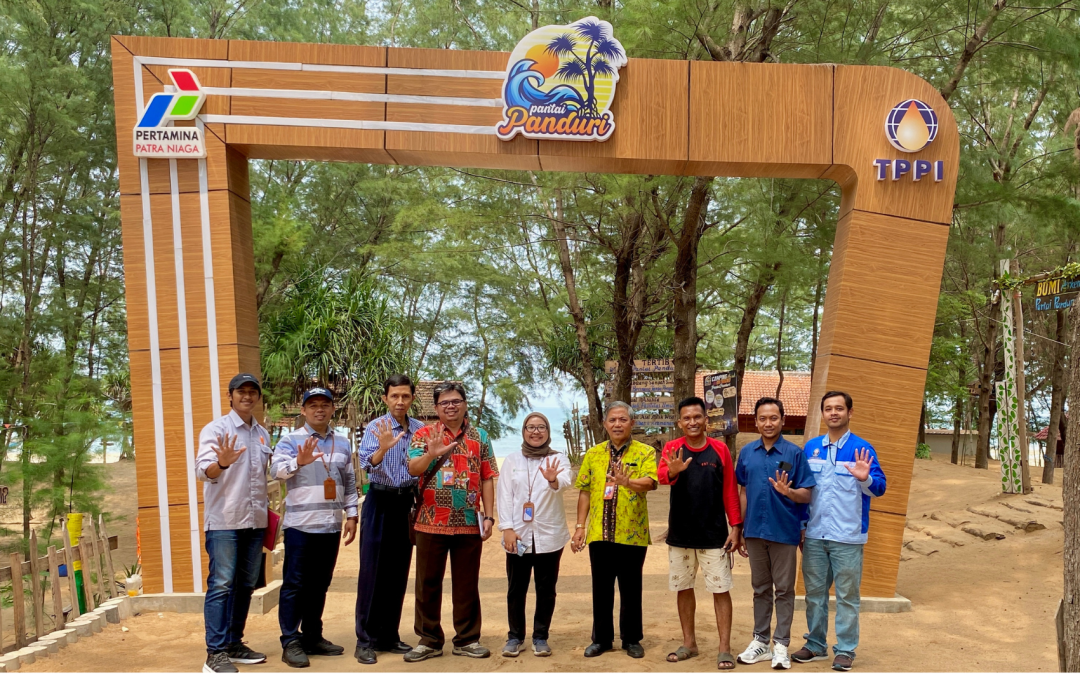
Nov 25, 2024
The Industrial Electrical Engineering Program, Vocational School of Universitas Diponegoro (UNDIP), conducted an official visit to Tuban to sign a cooperation agreement with PT Pertamina (Persero). This initiative aims to support the development of energy efficiency and the planning of renewable energy (EBT) implementation in the Pantai Panduri area.
During the visit, the UNDIP delegation, consisting of faculty members and leaders of the Industrial Electrical Engineering Program, was warmly welcomed by Pertamina Tuban’s management team. Both parties discussed potential collaboration in developing environmentally friendly electrical technologies and optimizing renewable energy resources in coastal areas.

Panduri beach was chosen as the pilot project location due to its significant potential for renewable energy development, including solar and wind power. Through the agreement, the Industrial Electrical Engineering Program of UNDIP Vocational School and Pertamina committed to jointly conducting research, developing technologies, and providing training for local workers to support the program’s sustainability.
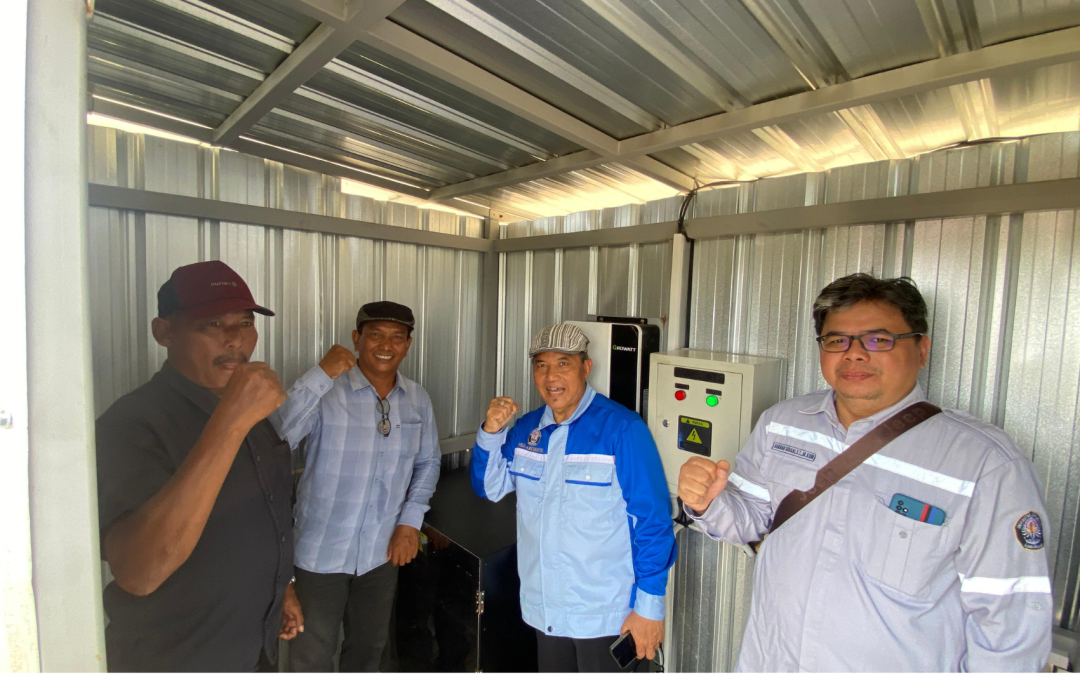
Nov 21, 2024
As a concrete step in supporting renewable energy development programs, the installation of Off-Grid Solar Power Plants (PLTS) for water pumps and solar-powered street lighting (PJU) has been carried out in Botoreco Village, Blora Regency.
The installation proceeded smoothly and was attended by the Village Head of Botoreco and local hamlet leaders. Their presence reflects the village government’s commitment to utilizing renewable energy resources to meet the community’s needs.

The Off-Grid PLTS for water pumps is expected to enhance the efficiency of clean water distribution to areas within the village that previously had limited access. Meanwhile, the installation of solar-powered street lighting aims to improve safety and comfort for village residents at night, especially in areas that previously lacked adequate lighting.
By utilizing solar panel technology, this program not only supports environmental sustainability but also contributes to reducing dependence on fossil fuel energy sources. The village government, along with the project implementers, is committed to maintaining and ensuring the sustainability of these facilities so they can operate optimally in the long term.
This program serves as an initial step towards broader implementation of renewable energy technologies in rural areas, providing tangible benefits for the local community.

Sep 4, 2024
Blora, 2024 – In an effort to support the utilization of renewable energy and improve access to clean water for the community, a service team from the Vocational School of Diponegoro University (UNDIP) has planned the installation of a 3 kW on-grid solar panel system for a water pump in Botoreco Village, Blora Regency.
This initiative has received full support from the Dean of the Vocational School at UNDIP and involves several lecturers, managers, and educational staff (tendik) from the Vocational School who are participating in its implementation. The solar panels will be used to supply electricity to the water pump, which is essential for the villagers to meet their clean water needs.
The initial step taken by the service team was a site survey to determine the optimal location for installing the solar panels and to assess environmental conditions that could affect system performance. This survey is a critical part of the planning process to ensure the system operates efficiently and effectively.
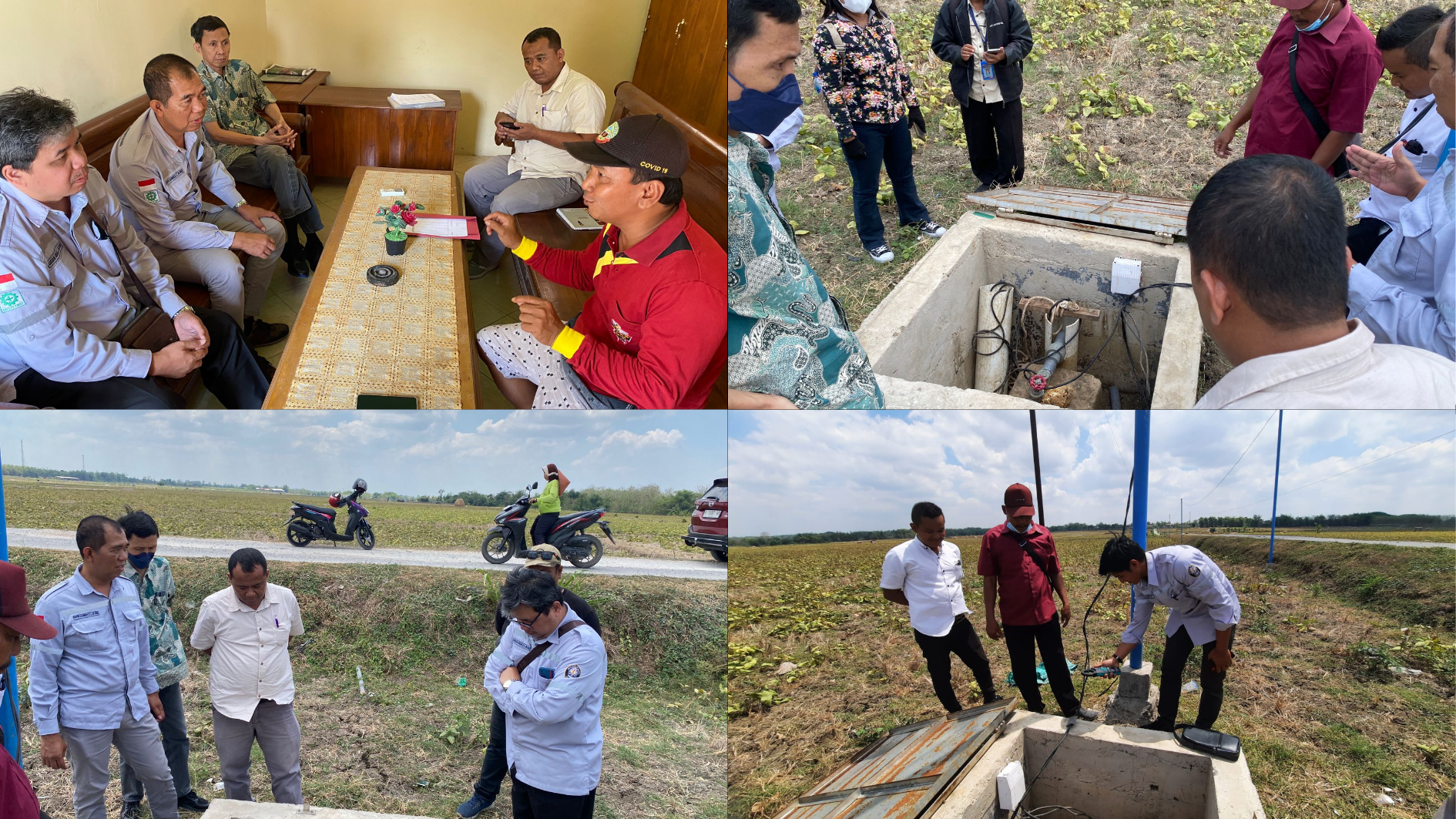
In addition to benefiting the community by meeting their clean water needs, this project is also expected to serve as a model for the implementation of environmentally friendly renewable energy and raise awareness about the importance of sustainable energy use.
Moving forward, the community service team from the UNDIP Vocational School will continue with the technical planning, equipment procurement, and system installation phases to ensure the success of this project. This activity is also expected to strengthen the synergy between higher education institutions and the community in developing technologies that benefit daily life.
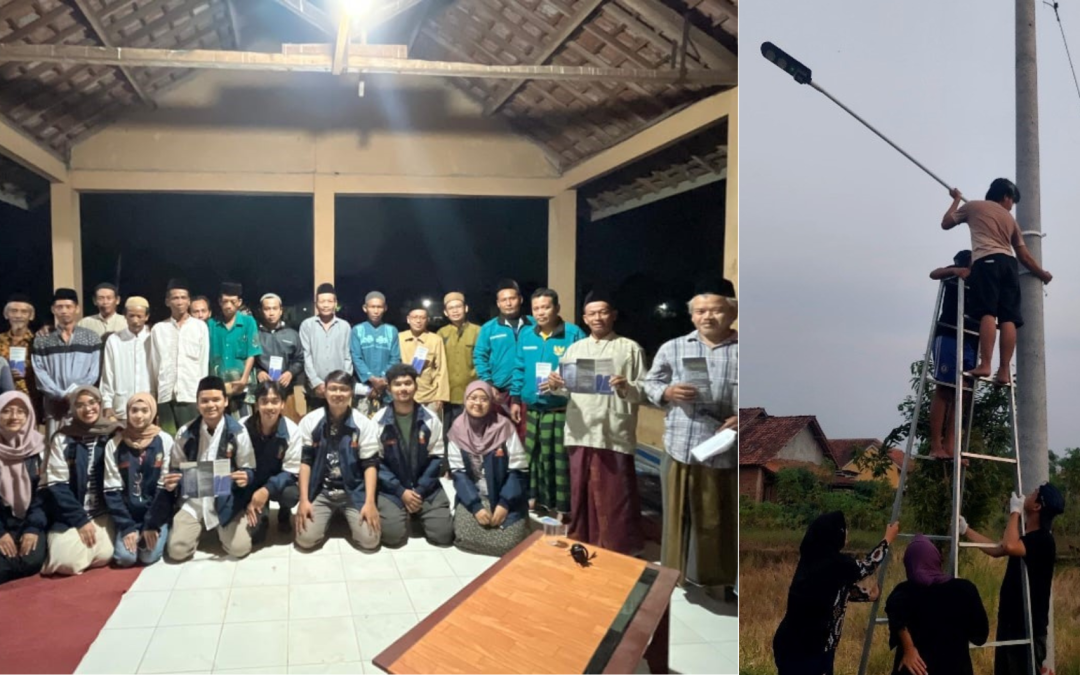
Aug 20, 2024
Students from the Industrial Electrical Engineering program at the School of Vocational Studies, Universitas Diponegoro (UNDIP), as part of their TIM II Community Service (KKN), successfully installed solar-powered lighting at the Farmers’ Hall in Pakumbulan Village, Buaran Sub-district, Pekalongan Regency. This initiative was aimed at addressing the lack of adequate lighting in the village’s rice fields, a result of suboptimal public street lighting distribution.
The installation took place at strategically chosen locations, determined through prior site surveys. This program involved not only the KKN students but also the Gotong Royong II Farmers’ Group and the local community in both the installation process and a subsequent information session. The students provided education on the installation and maintenance of solar panel lights, with the hope that the community will be able to independently utilize and care for this technology.
Mr. Sulaiman, the head of the Gotong Royong II Farmers’ Group, expressed his gratitude and appreciation for the initiative. “We hope the villagers will understand the benefits of using these solar panels,” he said.
The positive response from the Pakumbulan Village community highlights the program’s significance and necessity. It is expected to improve the community’s well-being while promoting the use of environmentally friendly renewable energy. UNDIP KKN students hope that with the implementation of this solar-powered lighting, Pakumbulan Village can serve as a model for other villages in adopting renewable energy technologies.

Aug 17, 2024
Name: Muhammad Ahnaf Firmansyah
Student ID: 40040620650008
Thesis Title: Design and Development of a Differential Relay Simulation Trainer Module Based on Arduino Mega 2560
Date: August 16, 2024
On August 16, 2024, Muhammad Ahnaf Firmansyah, an Industrial Electrical Engineering student, presented his final thesis defense entitled “Design and Development of a Differential Relay Simulation Trainer Module Based on Arduino Mega 2560.”
This research focuses on designing a simulation trainer module that allows students and practitioners to study and understand the working principles of differential relays. By utilizing the Arduino Mega 2560 platform, Ahnaf successfully developed a cost-effective yet functional system for simulation and educational purposes. The module is intended to enhance understanding of differential relay applications, particularly for electrical system protection.
The defense was held before a panel of examiners comprising expert faculty members in electrical engineering. Muhammad Ahnaf Firmansyah presented his research findings fluently and addressed each question and feedback from the examiners thoroughly. This defense marked a significant milestone in the completion of Muhammad Ahnaf Firmansyah’s undergraduate studies in Bachelor of Applied Industrial Electrical Engineering
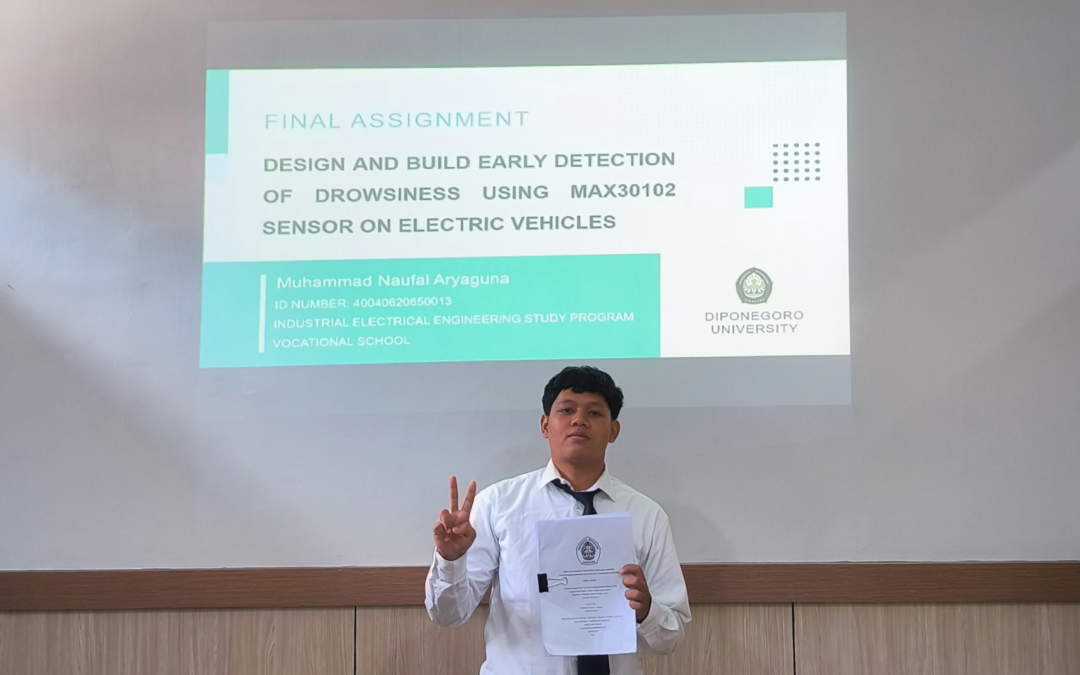
Jul 25, 2024
Name: Muhammad Naufal Aryaguna
Student ID: 40040620650013
Thesis Title: Design and Development of Early Drowsiness Detection Using MAX30102 Sensor in Electric Vehicles
Defense Date: July 24, 2024
On July 24, 2024, Muhammad Naufal Aryaguna, a student of the Industrial Electrical Engineering program, successfully conducted his thesis defense as part of the requirements to complete his studies. In his presentation, Naufal shared the results of his research, titled “Design and Development of Early Drowsiness Detection Using MAX30102 Sensor in Electric Vehicles.”
The aim of this research is to develop an early detection system for drowsiness specifically for use in electric vehicles, using the MAX30102 sensor. The device is designed to monitor the driver’s physical condition, particularly drowsiness levels, by measuring heart rate and oxygen saturation. This detection system is expected to help prevent accidents caused by driver fatigue while driving.
The thesis defense was attended by examiners and advisors who provided various feedback and constructive criticism on Naufal’s work. Through this defense, it is hoped that Naufal’s research findings can make a meaningful contribution to road safety, particularly for electric vehicles, and inspire further technological advancements in sensor-based innovations.










Recent Comments